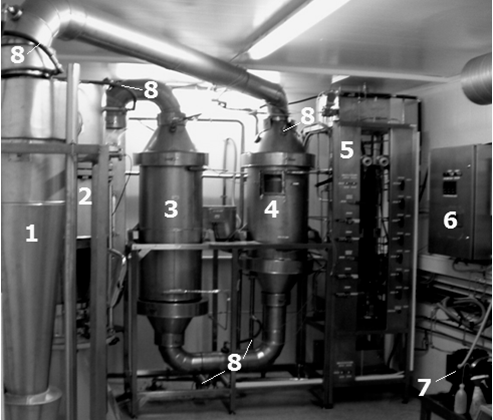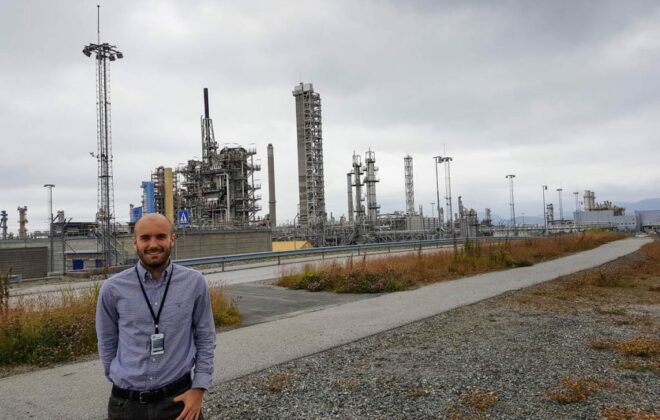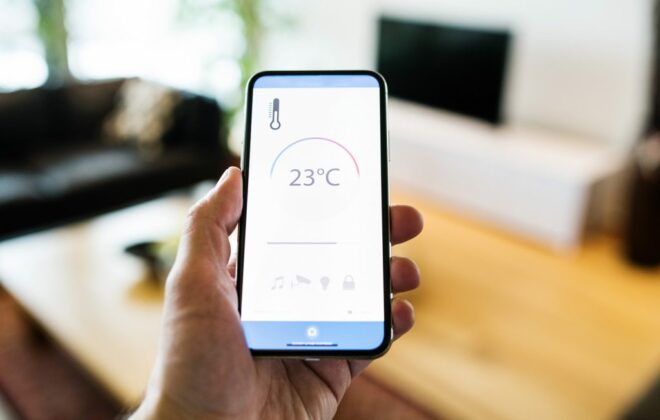Hot hotels in cold climates: reducing energy consumption with CO2 heat pumps

We’ve studied 140 hotels in Norway and Sweden, and found that CO2 heat pumps in hotels can reduce thermal energy consumption by about 60%.
The hotel sector features high energy consumption, which contributes to the global warming effect. Our latest work presents a study of 140 hotels, where the energy use, available energy sources and thermal systems are studied over a five-year period. Though a shift towards more sustainable thermal solutions is observed from 2015-2019, there is still a potential to further reduce the specific energy consumption in hotels.
As part of this study, we have investigated two hotels equipped with integrated CO2 heat pumps with thermal storage. Both systems demonstrate significant reductions in energy consumption and related emissions.
Two important findings:
- Hotels with heat pumps use 19.9 % less kWh/m2 than hotels with district heating
- CO2 heat pumps in hotels can reduce thermal energy consumption by about 60%
If you want to read more about this research, check out our paper in the Journal of Cleaner Production.
–
Source:
S. Smitt, I. Tolstorebrov, P. Gullo, A. Pardiñas, A. Hafner, Energy use and retrofitting potential of heat pumps in cold climate hotels, Journal of Cleaner Production, Volume 298, 2021, 126799, ISSN 0959-6526

Silje Marie Smitt
Silje Marie Smitt is a PhD Candidate at NTNU - Department of Energy and Process Engineering, affiliated with FME HighEFF - Centre for an Energy Efficient and Competitive Industry for the Future.
Tags In
Silje Marie Smitt
Search
Søk
Categories
- Arctic Research
- Arkitektur
- Bærekraft
- Bioingeniørfag
- Biologi
- Biology
- Biomedical Laboratory Science
- Biotechnology
- Bioteknologi
- Chemical Engineering
- Chemistry
- Climate
- Computer Science
- Datateknologi
- Digital
- Elektronikk
- Energi
- Energi
- Energy
- Engineering
- Engineering
- Environment
- Food Science
- Forskning
- Fysikk
- Fysikk
- Havbruk
- Informasjonsteknologi
- Informasjonsteknologi
- Ingeniørvitenskap
- Kjemi
- Kjemisk prosessteknologi
- Kjemisk prosessteknologi
- Kreftbehandling
- Kybernetikk
- Marine Technology
- Materialer
- Materials Science
- Materialteknologi
- Matvitenskap
- Meninger
- Miljø
- Min ph.d.
- My PhD
- My PhD
- My postdoc
- Nanotechnology
- Nanoteknologi
- Ocean
- Oil and gas
- Physics
- Research
- Simulering og visualisering
- Spør en forsker
- Studentliv
- Sustainability
- Ukategorisert
- Universitetsliv
- University Life
Kategorier
- Arctic Research
- Arkitektur
- Bærekraft
- Bioingeniørfag
- Biologi
- Biology
- Biomedical Laboratory Science
- Biotechnology
- Bioteknologi
- Chemical Engineering
- Chemistry
- Climate
- Computer Science
- Datateknologi
- Digital
- Elektronikk
- Energi
- Energi
- Energy
- Engineering
- Engineering
- Environment
- Food Science
- Forskning
- Fysikk
- Fysikk
- Havbruk
- Informasjonsteknologi
- Informasjonsteknologi
- Ingeniørvitenskap
- Kjemi
- Kjemisk prosessteknologi
- Kjemisk prosessteknologi
- Kreftbehandling
- Kybernetikk
- Marine Technology
- Materialer
- Materials Science
- Materialteknologi
- Matvitenskap
- Meninger
- Miljø
- Min ph.d.
- My PhD
- My PhD
- My postdoc
- Nanotechnology
- Nanoteknologi
- Ocean
- Oil and gas
- Physics
- Research
- Simulering og visualisering
- Spør en forsker
- Studentliv
- Sustainability
- Ukategorisert
- Universitetsliv
- University Life



